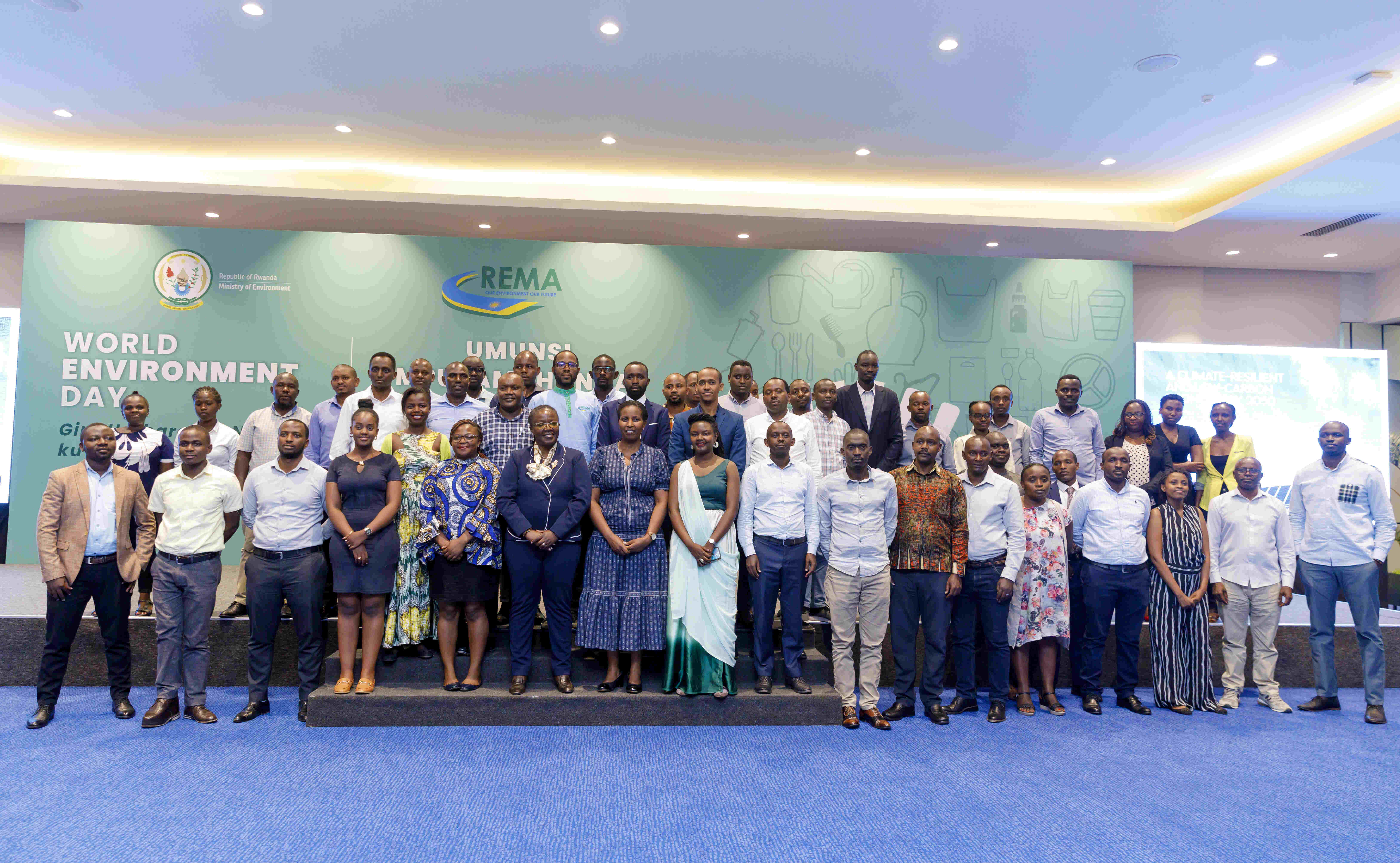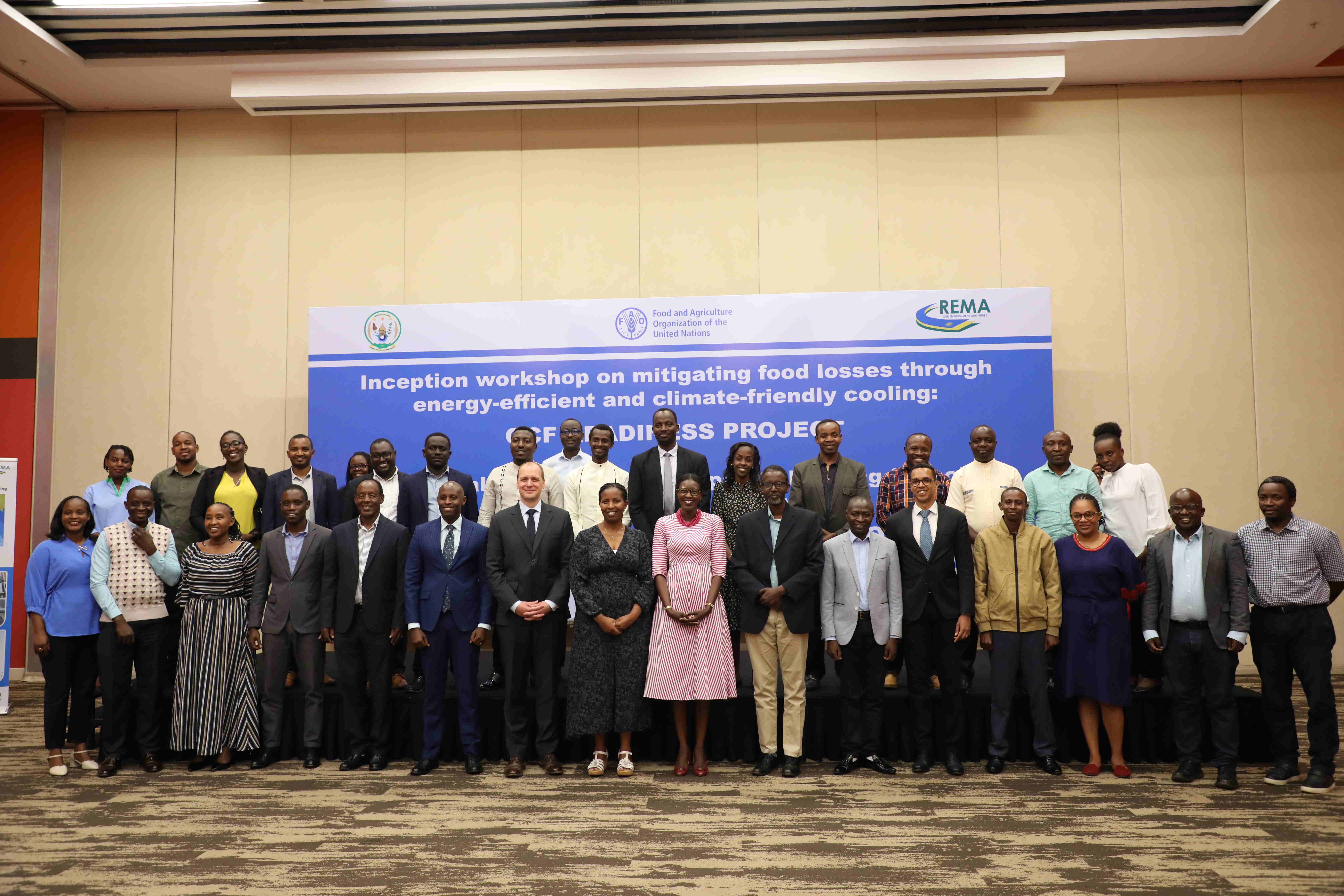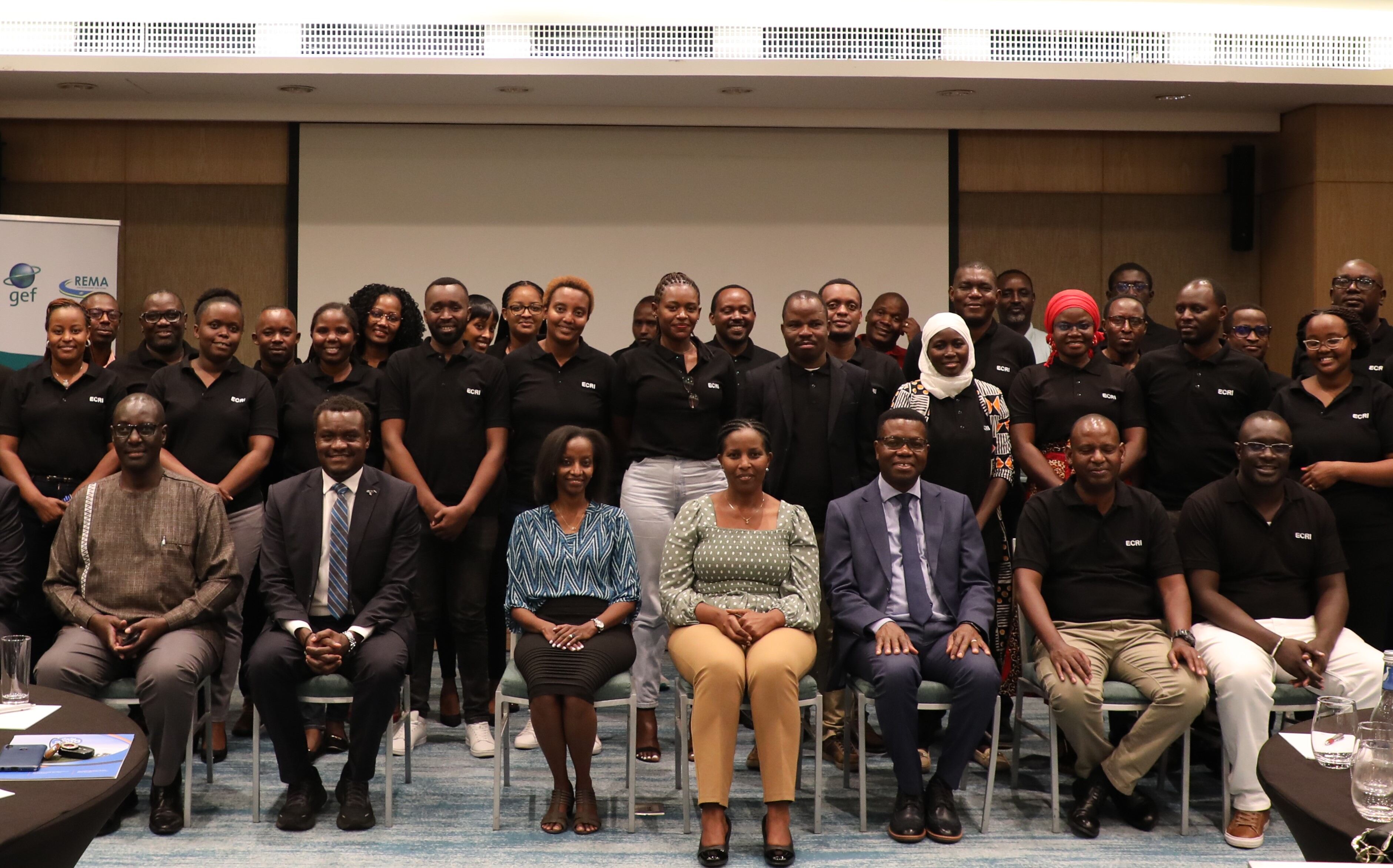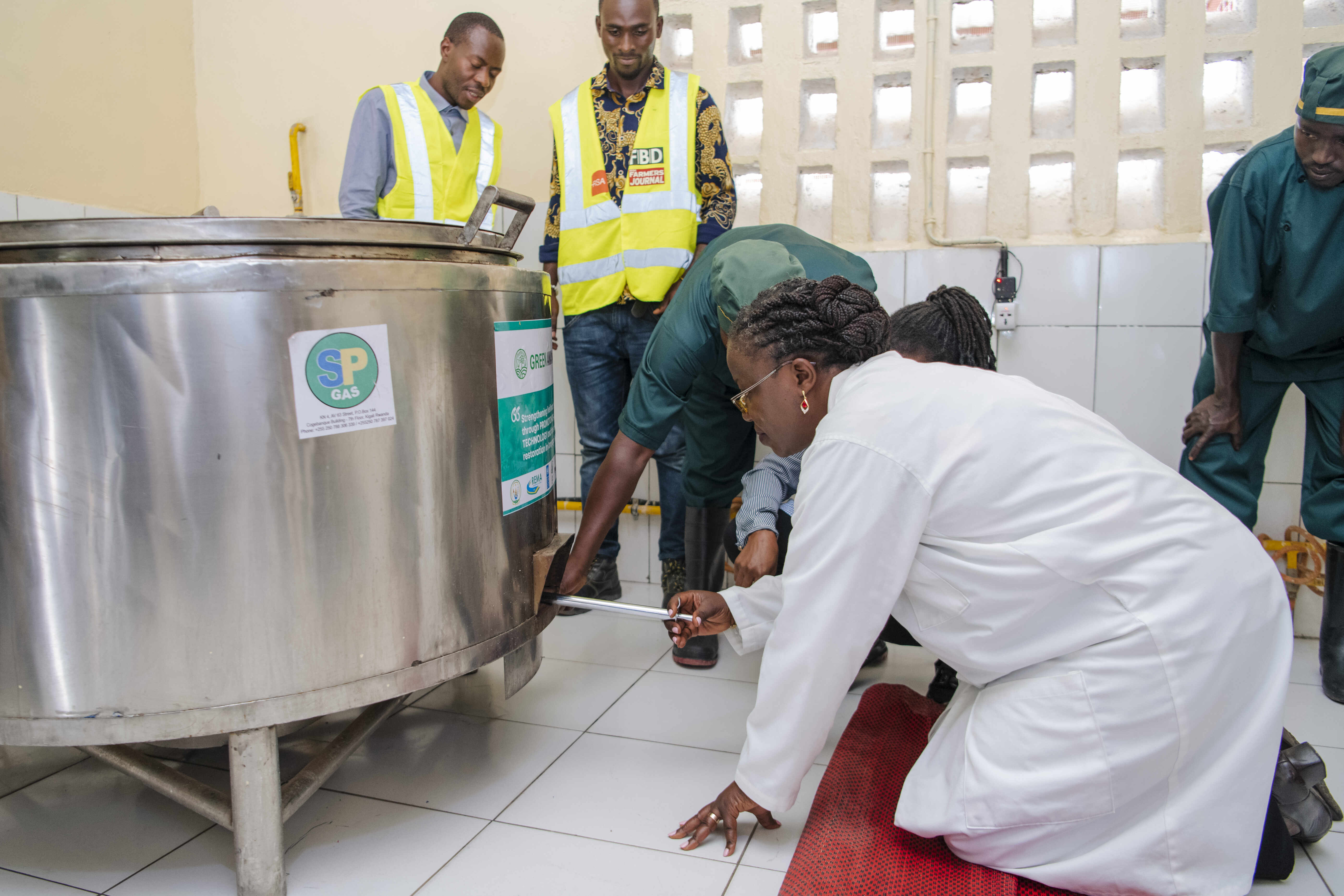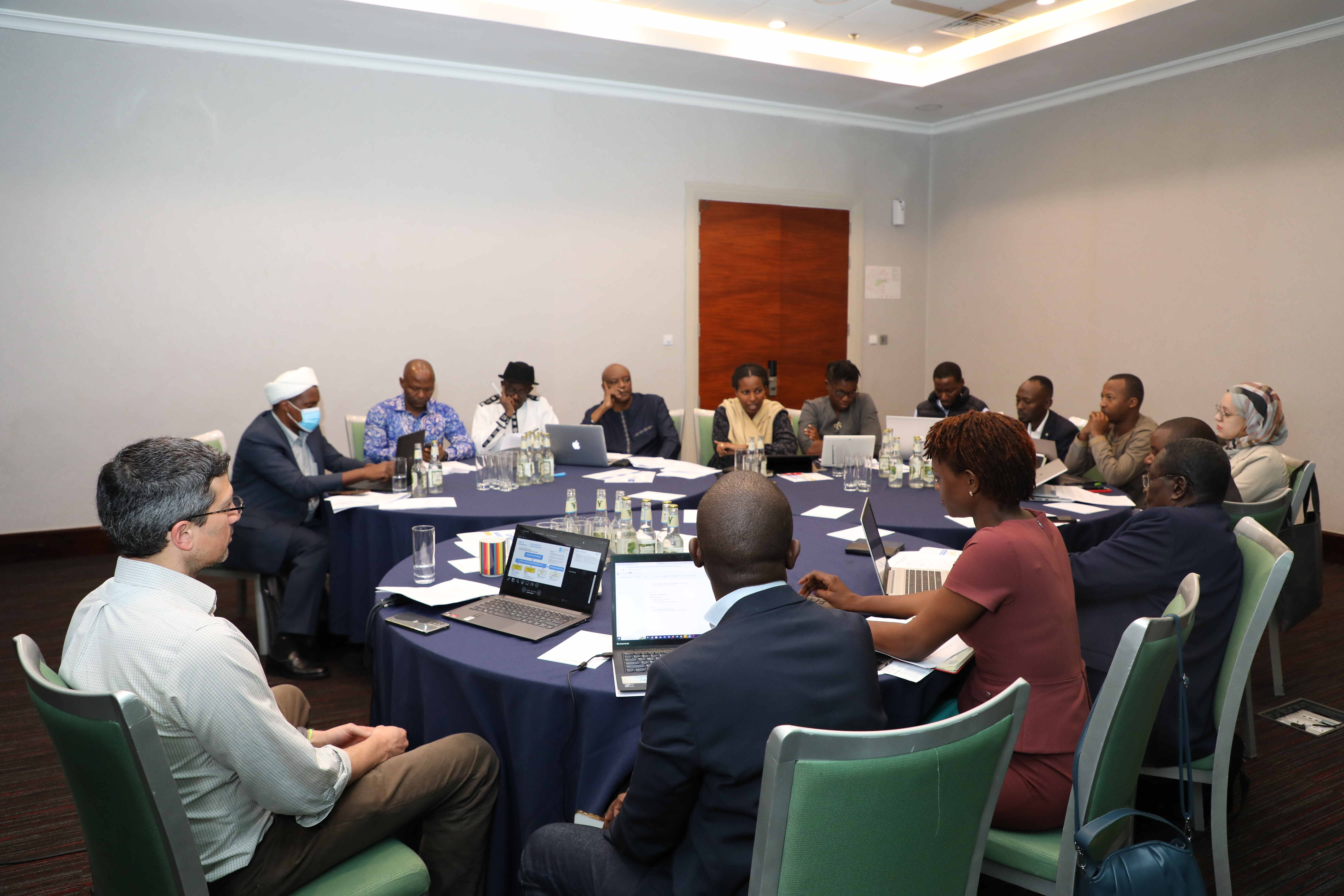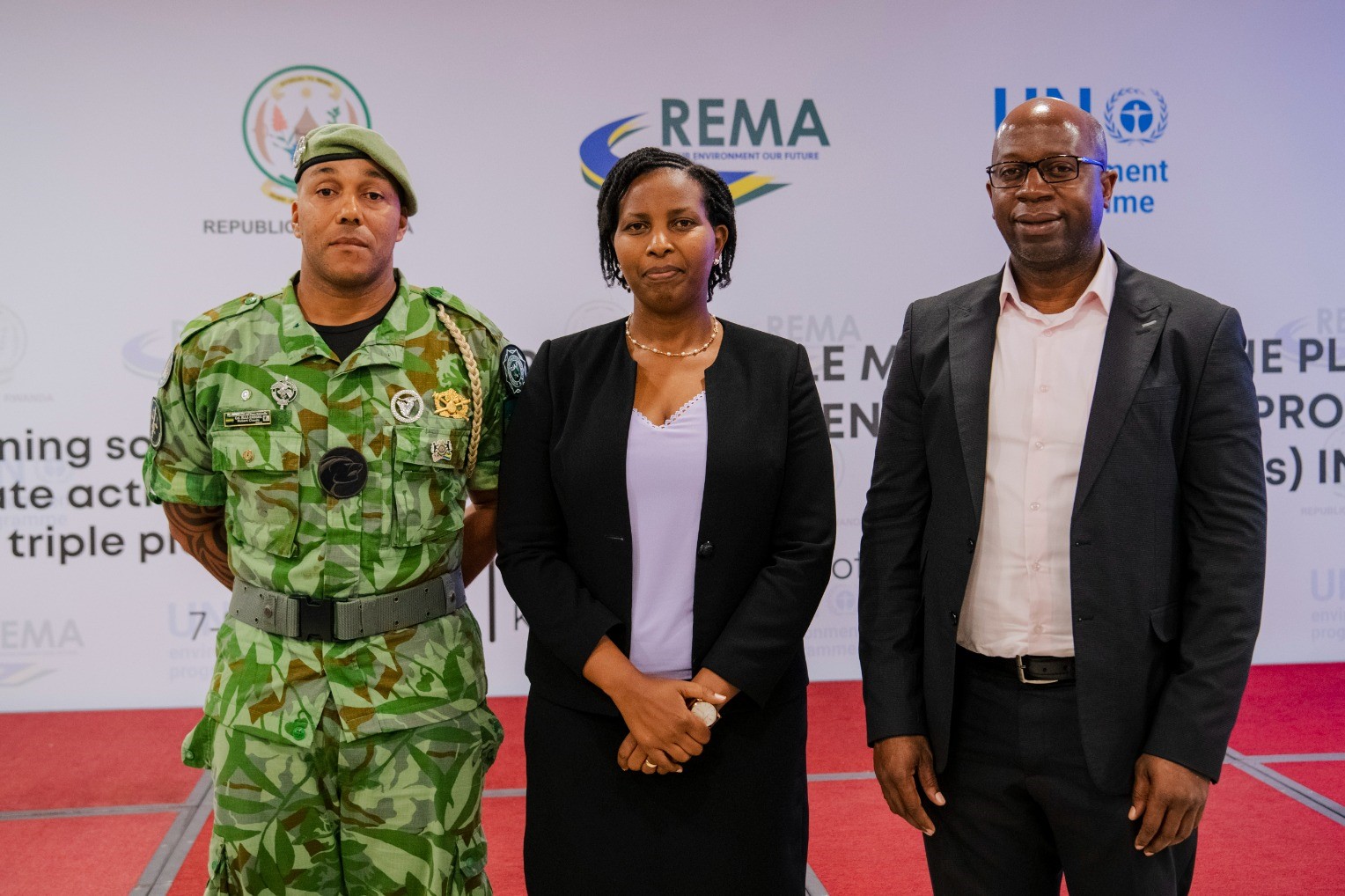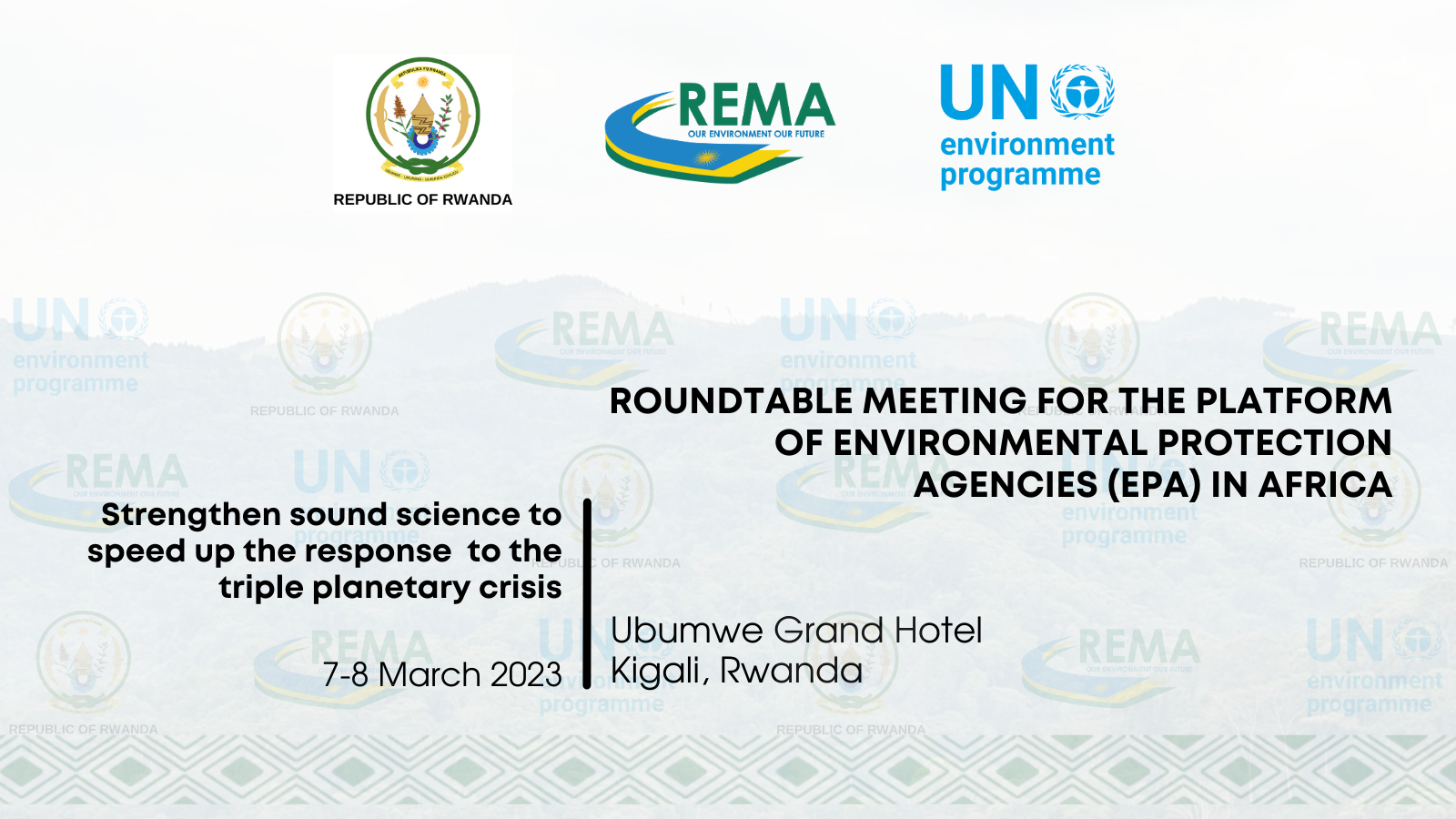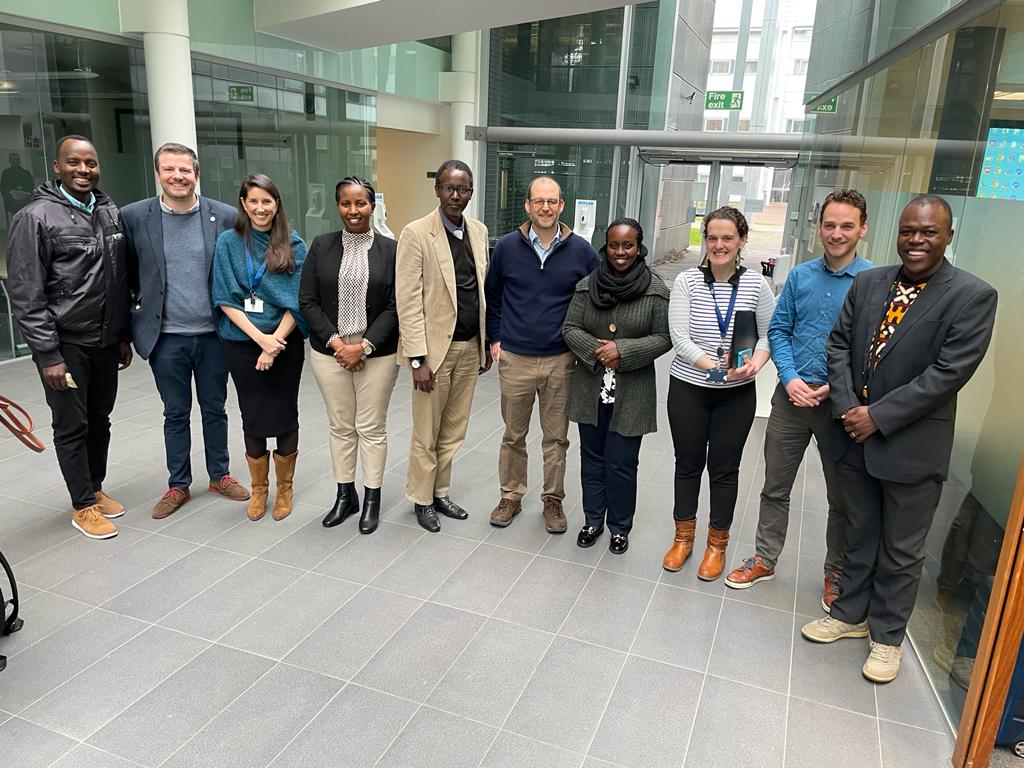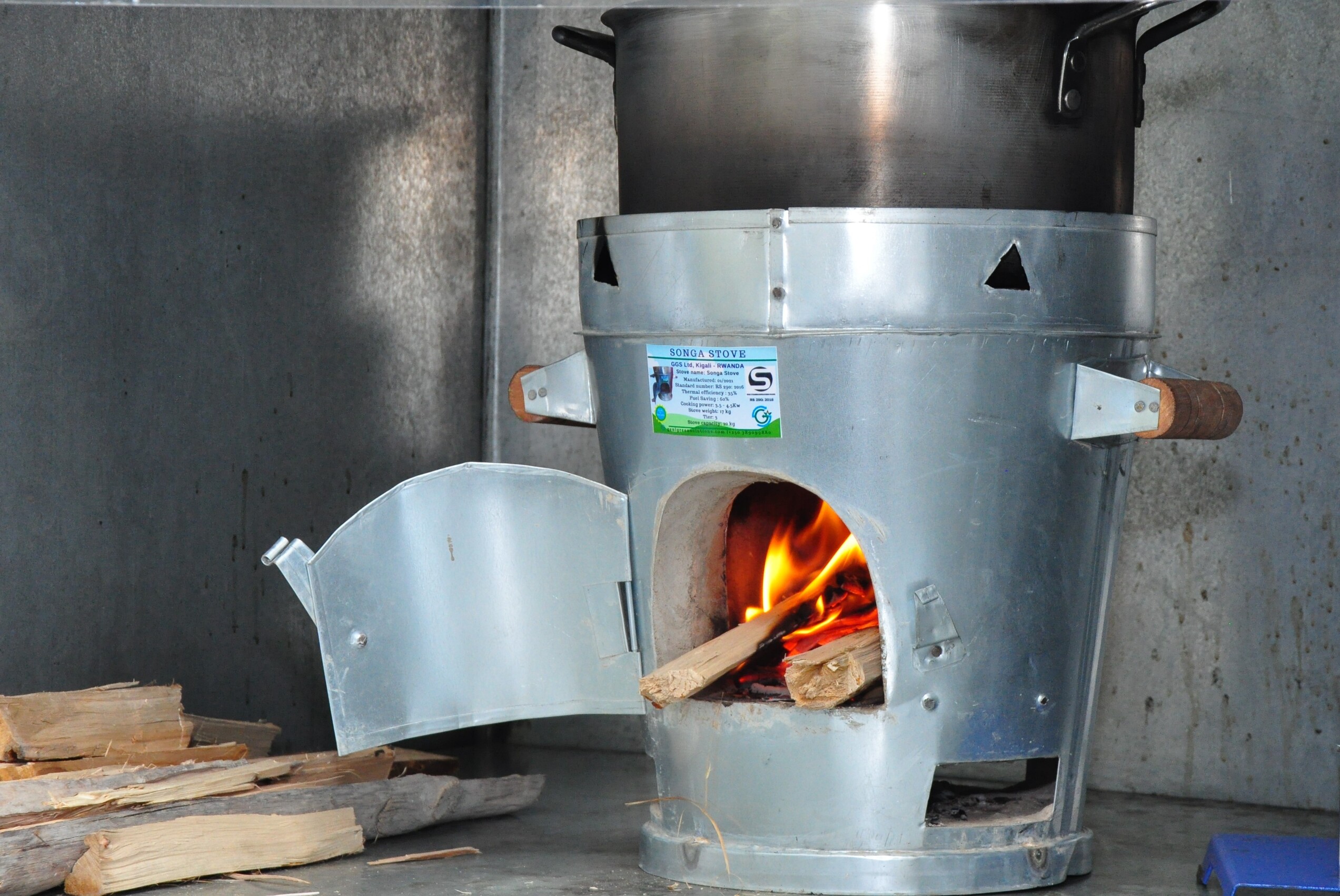
LDCF3 Project’s Improved Cookstoves: A Dual Solution for Climate Change and Human Health
In a ground-breaking move towards sustainable living, the Rwanda Environment Management Authority (REMA) is making significant strides in the fight against climate change while simultaneously improving human health. The distribution of improved cookstoves through the Ecosystem/Landscape Approach to Climate Proof the Rural Settlement Programme of Rwanda, also known as LDCF3 Project is proving to be a pivotal initiative with far-reaching benefits for both the environment and local communities.
Climate change and its associated impacts have posed a growing threat to communities worldwide, and Rwanda is no exception. One of the key contributors to environmental degradation has been the traditional cooking methods involving open fires and inefficient stoves.
The LDCF3 Project – being implemented by REMA in partnership with Rwanda Housing Authority, Meteo Rwanda and the Districts of Gakenke and Kirehe with support from the Global Environment Facility (GEF) through the United Nations Development Programme (UNDP) – seeks to address this challenge by providing households with technologically advanced cookstoves designed to reduce environmental impact.
The improved cookstoves distributed by REMA are equipped with enhanced combustion technology that significantly reduces the emission of greenhouse gases and pollutants.
"Receiving the improved cookstove through the LDCF3 Project has been a game-changer for our family. Not only does it cook our meals faster and with less fuel, but it has transformed the air we breathe. My children and I no longer inhale harmful smoke daily, and I feel a sense of relief knowing that our health is no longer compromised. Thanks to REMA and the LDCF3 Project for this positive change in our lives!" said Claudine Mukamisha, a resident in Kirehe District.
By promoting cleaner burning, these stoves contribute to a substantial decrease in carbon emissions, mitigating the adverse effects of climate change. The reduction in the demand for firewood or charcoal, a consequence of the improved efficiency of these stoves, also plays a critical role in curbing deforestation and preserving precious ecosystems.
"The improved cookstove provided by the LDCF3 Project is a beacon of hope for our environment. Before, we relied heavily on firewood for cooking, contributing to deforestation. Now, with the efficient design of the new stove, we use significantly less wood, easing the pressure on our local forests. It's not just a kitchen appliance; it's a solution that helps us cook sustainably and protects the trees that are vital for our community and the planet" said Liliane Nyiramana, a resident in Gakenke District.
In the beginning, 5,000 improved cookstoves (2,500 in Gakenke and the other 2,500 in Kirehe Districts) were distributed to 5,000 families.
The LDCF3 Project Manager, Charles Sindayigaya noted that beyond the environmental benefits, the positive impact on human health is becoming increasingly apparent.
“Traditional cooking methods often release harmful pollutants into the air, contributing to respiratory diseases and indoor air pollution. The introduction of cleaner-burning cookstoves is a game-changer, creating healthier living environments for countless households” Sindayigaya said.
Improved indoor air quality is a direct result of the reduced emissions from these cookstoves. Families that once faced health hazards due to prolonged exposure to smoke and pollutants are now experiencing a welcome change. Respiratory issues, especially among women and children who are often the primary cooks in households, are expected to decrease, leading to an overall improvement in public health.
Local communities are commending REMA for its foresight and commitment to addressing both environmental and health challenges simultaneously. The improved cookstoves distributed under the LDCF3 Project exemplify how targeted interventions can bring about tangible and positive change in the lives of people and the ecosystems they inhabit.
Topics
More posts
RWANDA MARKS WORLD ENVIRONMENT DAY AFTER WEEKLONG CAMPAIGN PROMOTING SOLUTIONS TO PLASTIC POLLUTION
Rwanda has on June 5, 2023 joined the rest of the World to mark the World Environment Day (WED 2023), which is marked with the theme Beat Plastic…
Rwanda and partners launch two projects to advance energy efficiency and sustainable cooling
The Government of Rwanda, through the Rwanda Environment Management Authority (REMA), the Food and Agriculture Organization (FAO) and the Green…
REMA launches the Evidence-based Climate Reporting Initiative to advance climate research and reporting
The Rwanda Environment Management Authority (REMA) in collaboration with the African Institute of Mathematical Sciences (AIMS) have on May 19, 2023…
National Ozone Officers meet in Kigali to discuss the implementation of Montreal Protocol and its Kigali Amendment
The Rwanda Environment Management Authority (REMA) in collaboration with the United Nations Environment Programme (UNEP)’s OzonAction has organized a…
Minister Mujawamariya officiates the use of LPG donated to 20 schools by REMA through Green Amayaga Project
The Minister of Environment, Dr. Jeanne d’Arc Mujawamariya has on 3rd May 2023 launched the use of Liquefied Petroleum Gas (LPG) for bulk cooking in…
Delegates from across Africa meet in Kigali to Develop Priorities and Strategies for International Legally Binding Instrument to End Plastic Pollution
The Rwanda Environment Management Authority (REMA), in collaboration with the Environmental Investigation Agency (EIA) and the Center for…
Rwanda elected to chair Platform of Environmental Protection Agencies in Africa
The first-ever roundtable meeting of Heads of Environmental Protection Agencies and Directors of Environment in Africa (EPAs) has elected Rwanda to…
Rwanda to host African Heads of Environmental Protection Agencies to discuss common environmental challenges
Rwanda will from 7–8 March 2023 host the first meeting of the Heads of Environment Protection Agencies and Directors of Environment in Africa (EPAs).
…Delegates from Rwanda conduct a strategic tour in UK to pave the way for the operationalization of ACES
Rwandan Delegates and the Africa Centre of Africa Centre of Excellence for Sustainable Cooling and Cold-Chain (ACES) Project team are participating in…
